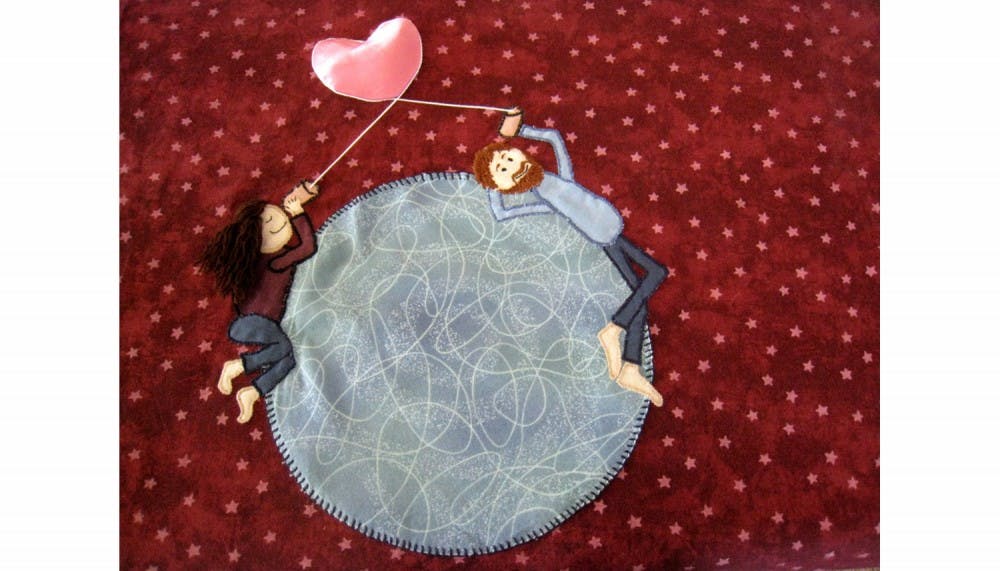
Maybe you’re still with your high school girlfriend. Or say your boyfriend's studying abroad. Your significant other could have graduated already, or maybe you transferred away from your other half. Long distance relationships can take many different forms in college. What connects all these relationships is technology.
Social media has had a key role in connecting people, but everything from texting and calling to Facebook and Snapchat can help people keep in touch with romantic partners and maintain relationships.
Maddie Vaziri (C ’20) started dating her boyfriend, Jake Mitchell, the summer before her senior year of high school. Jake now attends Georgetown, but both of them are originally from Ohio, where they lived a mile apart.
“That was difficult––going from that extreme to another extreme. But that being said, technology definitely made the transition pretty easy,” Maddie said.
Kristine Park (C '17) began dating her boyfriend, Mark Bai (C '16), last spring break. Mark graduated from Penn last year and now lives in Chicago. They see each other every two weeks.
Kristine said, “It hasn’t been too bad because I guess it builds up the anticipation for when you do get to see each other. But I think especially with technology these days because it’s just so advanced, and like you can do video calling whenever, it’s been a temporary replacement.”
Face–to–FaceTime
In addition to texting and calling, FaceTime is a popular way of connecting partners.
Analise Bump (C ’18) transferred to Penn from Syracuse her sophomore year. She started dating her current boyfriend, Nick Supley, who's a senior at Syracuse, the second semester of her freshman year. They text throughout the day and talk on the phone while Analise is walking to class or other places. They normally FaceTime before bed.
“No part of me can even begin to imagine what people did before texting and FaceTime… I can’t even imagine the whole writing a letter thing. That would never work out for me honestly,” she said.
Mathilde Beniflah (C ’18) met her boyfriend, Alex Renfrow, through a mutual friend, and they've been dating since January of her freshman year. At the beginning of the relationship, Alex lived in New York. Since then, they’ve lived various distances from each other, with Mathilde living in Germany and D.C. and Alex living in Philadelphia for some time. Alex now resides in Southern New Jersey, about an hour from Penn.
Mathilde said, “It’s easy to FaceTime and catch up while you do other things… We can easily have a proxy to a face–to–face conversation which is better than over the phone.”
FaceTime and video calls in general, such as through Skype, allow for more levels for conversation. Mathilde said, "I’m a very expressive person, I make a lot of facial expressions and hand gestures. I think that’s part of my communication style, so I’m glad that FaceTime can capture more of that than on the phone.”
However, not everyone talks when on a video call. Maddie and her boyfriend sometimes FaceTime each other while doing homework. She described it as, “like having a study buddy.”
Kristine also talked about using the “Share Screen” feature on Skype, which allows users to see the computer screens of who they’re Skyping with. Kristine and her boyfriend use this feature to watch movies together and have also planned a trip this way.
Connection Issues
While Skype and FaceTime allow couples to communicate in ways that feel close to in–person conversations, there are still ways in which technology falls short. Maddie and Mathilde recognized some of the disadvantages of conducting relationships virtually.
“It’s hard to show how much you care when you’re only communicating with technology,” Mathilde said. “No amount of heart emojis can communicate what you’re actually trying to say.”
Although technology can make the distance seem smaller, technology can also complicate and worsen arguments. “If you have a fight, it’s easy to hang up the phone and then not deal with it versus when you’re in person and you have to confront the issues… I think it’s harder to resolve issues in a relationship when you’re dealing through technology just 'cause it’s so easy to shut it off,” Mathilde said.
Maddie recognized the dangers of being constantly connected. “We also both acknowledge the negative effects to always being able to be connected. We definitely try to be controlled with our use.”
However, overall, technology has provided for positive long–distance relationships. Maddie said, “I definitely feel connected, like I can reach him whenever I want to. It’s definitely easier than it was like at any other time. So whenever I’m feeling sad or lonely, I just remind myself that it’s a million times better than it ever would have been for any other generation.”


